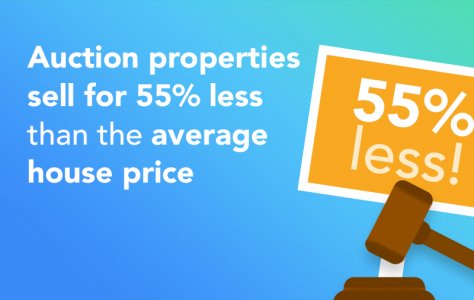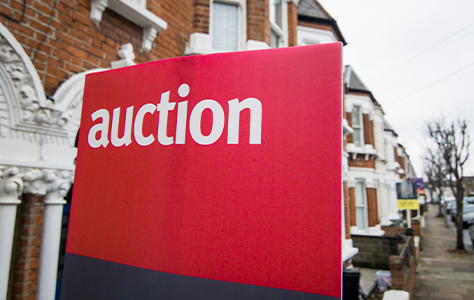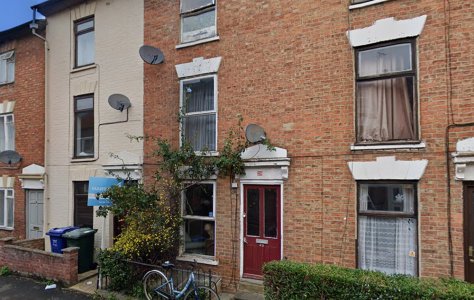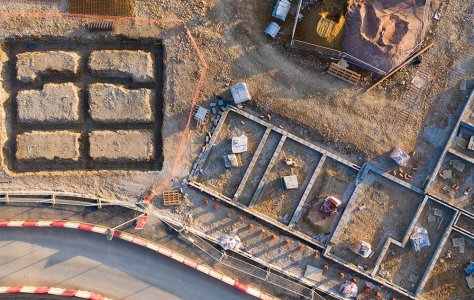
Property Auction Finance specialists.
We arrange fast finance for auction property purchases, including Buy To Lets (BTLs), residential, semi-commercial, commercial and land purchases.
We act fast, with immediate decisions and can facilitate auction finance for properties within your 28-day deadline.
Our Auction Finance service
- Market-leading property auction finance from £26,000 to £250m
- Monthly interest rates from 0.44% pm
(Lower rates for £700,000+ loans or less than 50% LTV) - LTVs up to 80% (up to 100% finance if additional collateral is available)
- Automated valuation options and dual legal representation
- No monthly payments with interest rolled-up options
- Terms up to 24 months
- Available for auction property purchases in England, Scotland, Wales and Northern Ireland
We provide a fast, reliable service to help you get the auction finance you need at the best available rates.
We consider all types of credit history, including non-status and bad credit, and don't perform automated credit checks, so there's no footprint from enquiring.
With an extensive network of the UK's top property auction finance lenders, including specialist lenders, family offices and private investors, we can source the property auction finance you require:
up to £300k loans in 3 days
up to £750k loans in 7 days
up to £250m from 14 days
Where your timeline is critical and short, we're confident we can get your auction finance in place. Get your best no-obligation quote today.
Auction Finance uses
Residential auction finance
for UK residential property auction purchases, such as
Uninhabitable property repossessions, buy-to-let, HMO, buying a property with a short lease, property flips and investment purchases
Commercial auction finance
for commercial property investment and commercial land purchases purchased at auction
Our common-sense approach to property auction finance means we can often source auction finance lenders when others struggle to. Including if you’re self-employed, are making your first investment purchase, or have no or less-than-perfect credit.
Auction Finance Lending Criteria
| Loan to value (LTV) | 80% maximum |
| Loan term | 1 to 24 months |
| Loan amount | £26,000 up to £250m |
| Interest options | Rolled-up, retained or serviced |
| Interest rates | From 0.44% |
| Decision | Immediate decision in principle |
| Completion |
Up to £300k in 3 days |
| Early repayment fees | None |
| Availability | Secured on assets in UK & Europe Individuals, Companies, SPVs No credit & adverse credit considered |
| Exit strategy | Sale or refinance |
We offer fast, innovative, flexible property auction finance to businesses and individuals throughout the UK. Our auction finance, secured on property or land, enables clients to raise funds to acquire property quickly.
Property auctions and the financial markets move quickly, and opportunities come and go in the blink of an eye, making it difficult for businesses, investors and landlords to acquire their next property or expand their portfolio. This is compounded by the added complexities of buying a property at auction, wherein buyers must complete the purchase of properties within 28 days. Buying a property at auction has many advantages; most properties sold this way are offered below-market prices, enabling buyers to achieve great investment opportunities. When financing properties bought at auction, the best way to secure funds is by using auction finance.
Auction Finance News, Stats & Opinion
News, opinion and insights from the bridging & auction finance experts

Auction properties sell for 55% less than the average UK house price
14th December 2022 1 minute read

Rents rising UK-wide! We show you the BTL investment hotspots!
31st October 2022 1 minute read

Buying property at auction to flip for profit
13th July 2022 5 minute read

2024 Property Auction Finance Guide
If you're unsure how to purchase property using auction finance, what it is, how it can be used or how it works, we've created an easy-to-understand guide.
Contents
Auction finance: Everything you need to know
Property auctions are increasingly popular among buyers and investors. They provide a unique opportunity to acquire a property at a discounted price.
Most buyers will have to use a bridging loan to fund a property at auction. This guide will explain how auction property bridging loans work, what information is needed to be eligible, key product features, costs, interest rates you can expect to pay, and the alternatives you may want to consider.
What is Auction Finance?
Auction finance is short-term finance used to purchase property at auction. It's also known as property auction finance or an auction bridging loan for property and land purchases.
Individuals and businesses often cannot use traditional lending sources to fund a purchase at an auction, such as a traditional high street bank loan, due to the lending criteria of traditional lenders being far stricter or the inability to complete the finance in the time frame required.
Auction finance fills this void by providing a loan with fast turnarounds and less stringent criteria. It is a short-term loan with a repayment date usually no longer than 12 months away.
How can auction finance help you buy your next auction property?
Auction finance is frequently used to buy property at auction because it can be arranged quickly, usually within 3 to 14 days, and is available for sums ranging from as low as £26k up to £250m or more.
When buying property at auction, 10% of the total property price is typically required as a deposit on the day of the auction, as soon as the buyer places their winning bid. The buyer then has 28 days to complete the purchase or risk losing the property and deposit.
Traditional mortgages take substantially longer to arrange than property auction finance, which is often unsuitable for this type of purchase. Auction finance, essentially a bridging loan, is usually used to bridge the gap between when the purchase funds are needed and the time it takes to arrange a long-term mortgage.
Once this mortgage is arranged, the buyer can use this funding to pay back the auction bridging loan.
What is Auction Finance used for?
Auction finance can be used to purchase outright properties sold at an auction. It can also be used for refurbishments/renovations, which may be required to increase the property's value before selling. This model of property development is often known as flipping property.
Auction finance can be used for any property value requested and agreed upon with the lender. That means that the property can be a domestic or commercial property of any type. Some lenders will prefer certain types of properties, such as those with residential purposes or investment properties.
Most auction finance lenders will finance residential properties, including houses, flats, bungalows, and buy-to-let properties. The UK has several specialist lenders to finance commercial property and land, including development and agricultural properties.
In the UK, auction finance can purchase various property types. Whether you are looking for a residential buy-to-let investment, a commercial or industrial unit or a development opportunity, a range of auction-related finance solutions can be tailored to your needs. These include:
Auction Finance for Residential Property
Auction finance can be used to purchase both standard residential freehold or leasehold properties. Popular options for landlords and investors include houses, flats and apartments, which can usually be purchased at auction at below-market value prices through auction houses or estate agents. The typical property purchased with auction finance will have been repossessed by a lender or inherited as part of an estate, which is often why it may be available at a significant discount or below the market value.
The advantage of using auction finance for residential property is that buyers can access finance tailored to their requirements, with a maximum loan amount covering up to 80% of the purchase price. Achieving 100% funding with additional security in the background is also possible.
If you intend to refurbish your residential or commercial property, you may also be able to obtain up to 100% of the build costs.
Auction Finance For Commercial Property
Commercial properties such as warehouses and shops can also be purchased with auction finance. As with residential property, the typical commercial property purchased through auction will be repossessed or inherited.
The advantage of using auction finance for commercial property is that buyers can access finance tailored to their requirements, with lending amounts covering up to 65% of the purchase price.
Auction Finance For Industrial Property
Industrial property is another popular option for those considering auction finance to fund a purchase and a heavy conversion from an industrial to a residential or mixed-use scheme. This includes warehousing, storage facilities, factories and workshops spread across the UK’s industrial sector, with potential buyers able to take advantage of the attractive prices often available through auctions. Yards, petrol stations, forecourts and garages are good examples of industrial property that may come to auction. Unusual properties, such as water towers that could be converted, might also be purchased at auction.
Auction Finance For Development Opportunities
For those with the skills and knowledge needed to complete a development successfully, Auction finance can also be used to purchase run-down or undesirable properties at a discount. These properties can then be renovated and sold for a higher price or converted into rental properties to generate income.
Auction finance can, therefore, be used to purchase a wide range of property types in the UK, from residential and commercial properties to development opportunities.
Why might a property be considered unmortgageable?
A key factor that can affect the mortgagability of a property is its condition. For a property to be considered suitable for mortgaging, it must be structurally sound and in good condition, whereas auction finance is purpose-made for properties in unmortgageable condition.
If it requires substantial repairs or renovations to restore it to a habitable condition, banks and lenders may decide against offering a mortgage. This is why mortgages aren't typically suited to properties bought at auction.
There are other considerations however that make auction property finance such as bridging loans a better alternative to mortgages, such as the time it takes to organise a mortgage. A mortgage cannot typically be completed within the 28-day requirement of auction houses.
How does auction finance work?
When you want to purchase a property at auction, you're advised to be prepared by having your funds in place before the auction begins. An auction finance loan, such as a bridging loan, can be used instead of cash, allowing you to borrow the capital needed before the auction.
Avoid thinking you'll be able to arrange the finance for your property purchase after placing the winning bid - instead, do this ahead of the auction. It's safer. There are penalties if you cannot complete the property purchased via an auction, such as losing your deposit and potential legal ramifications, such as being sued by the seller. Speaking with a broker before the sale date is a smart move to ensure you can borrow the money you anticipate needing to complete a purchase before sale day.
You'll also be required to provide proof that the funds are available to pay for the property before you can place a bid. This can be done by getting an ‘in principle’ auction finance loan, which promises that funds will be available for the purchase. Once approved, you must be ready to draw down the funds within 28 days from the auction day.
Once you have secured the successful bid and the money is transferred to the seller, you’ll either need to begin making regular auction finance repayments if you've chosen a serviced interest option or if, on the other hand, you've chosen auction finance with an interest option of either retained or rolled-up you can defer that interest - there will be no monthly payments.
Instead, you'll repay the entire loan upon the loan's term end - the date you've agreed to pay back the auction finance to the lender. Auction finance is typically repaid in full within 12 to 24 months through the sale of the property or the longer-term refinancing through a mortgage.
Key Product Features
Auction finance can generally be tailored to suit the individual borrower’s requirements, with key features including:
• Short-term loans with fast turnaround times between application and drawdown
• Flexible terms and conditions with loans available for periods of up to 12 months
• Maximum loan amounts up to £2 million
• Interest rates from 0.44% per month depending on loan-to-value ratio
When looking for an auction finance loan, you will seek terms that benefit your needs. At a basic level, you should ensure that a reputable lender provides the loan with a solid track record. There are a few other features you will want to check as well.
First, look for a loan that does not require any upfront fees. Many lenders will charge an application fee, facility fee, and other charges. Be sure to double-check all applicable fees and compare them with alternative lenders.
Next is to consider the repayment terms. The auction finance should generally be payable between six to twelve months, although it's possible to have a 24-month auction finance loan. You should ensure that you can repay within the set timescales if you've chosen a serviced interest loan and that there are no hidden charges for repayment in advance or delays beyond the agreed repayment date. You will also want to consider the interest rate and fees associated with the auction finance. Auction finance is more expensive than mortgages because of their short-term and higher-risk nature, so it is worth researching the market to find the best deal.
Finally, you should consider the flexibility of the auction finance. You should check to see what options the lender has for extensions, extra borrowing, and the ability to convert the auction finance to a mortgage whenever you are ready to do so.
What are the Auction Finance lending criteria?
Lenders will look at a combination of factors to determine the borrower's eligibility for an auction finance loan, including:
- The cash you're going to put into the purchase.
- The security offered by the property.
- LTV (loan to value) ratio of the property.
- Credit history and score.
What information is needed to make an Auction Finance application?
As with any loan application, you must provide a range of personal information to ensure that you are eligible for the loan and that the loan is suitable according to your financial situation.
You will be asked to provide information about your income, employment status, credit history, and financial commitments. You will also need to provide proof of ID, such as a passport or driving license, and evidence of the source of funds you plan to use for the purchase.
If you are looking to use the auction finance for a property in the UK, you will need to provide proof of address and the property address you intend to bid on.
What kind of interest rates will I pay?
The interest rate on an auction finance loan varies from lender to lender. Generally, it is higher than that offered for a conventional mortgage because the loan is unsecured and more risky. Interest rates are also affected by factors such as your credit history and financial commitments.
Is Auction Finance quick?
Yes. Auction finance is often a much faster process than applying for a conventional mortgage. As there is minimal paperwork and no need for a survey, the loan can often be approved, and funds available within a few days. This makes it ideal for those looking to secure a property quickly.
How much can I borrow?
The value of the auction finance is primarily based on how much you want to borrow, the value of the property, and how much of a deposit you have available. Generally, lenders will require a loan value of at least 50-80% of the property’s value.
This means you should always have substantial equity in another property you intend to use as security for the auction finance or a substantial cash amount towards the purchase to secure the loan.
Can I get 100% auction finance?
Borrowing 100% of your auction purchase price is possible. However, to achieve this, you’d need to offer additional security over additional property or properties.
How can I apply for Auction Finance?
To apply for auction finance, you should contact a reputable broker or lender specialising in auction finance. They will provide you with an application form and complete any necessary paperwork. It is important to answer all the questions accurately and provide as much evidence as possible proving your financial capabilities.
What's better - an auction finance lender or broker?
You have two alternatives for sourcing and securing auction finance in the UK. You can go to an auction finance broker or a finance lender. Both have merits.
A broker will likely be able to package your unique circumstances and requirements into a more palatable deal for a lender. An auction finance broker will also likely know several competitive lenders who would like the deal they have so they can negotiate a better rate on the client's behalf. Whilst broker's fees increase the cost to the borrower, they can pay for themselves because an auction finance broker can source the borrower a better deal for their loan.
Additionally, auction finance brokers tend to know more lenders then those well-known names, for example some brokers have access to private investors and family offices who also like to lend to those who specifically buy property at auction.
Going direct to a auction finance lender will likely mean you avoid paying the broker fees, however you may also be limited to fewer lenders and therefore end up paying a higher interest rate for your auction finance.
What are the alternatives to auction finance?
If you are looking to purchase a property at auction, you may want to consider other financing options. These could include taking out a mortgage, remortgaging your existing property, or drawing on a cash reserve. Each option has its advantages and disadvantages and should be assessed on its own merits.
What are the benefits of buying a property at auction?
Buying a property at auction comes with a range of benefits. Firstly, you are likely to acquire the property at a discounted rate, that is, below market value. This could help you increase your potential to earn a profit on the property.
You also benefit from increased speed and certainty regarding the purchase. Unlike conventional real estate purchases, your bid is legally binding when you buy a property at auction. This eliminates the risk of the seller withdrawing the property from the market or another buyer making a last-minute offer.
Lastly, buying at auction can save you time and money if you want to purchase a property that requires extensive renovation. Before you bid, you can view the property before the auction takes place, allowing you to assess its condition before committing.
Will I be eligible for auction finance?
Eligibility for an auction finance loan will depend on several criteria. Lenders for auction finance typically care more about the property security and the LTV than the best credit history. Some lenders will have eligibility requirements, including your credit score, employment status, current financial commitments, and income - others will not. Speaking with an auction finance broker first can help you better understand how to approach seeking the finance you require.
What are the exit strategies for auction finance?
An exit strategy is the strategy that investor uses to extricate themselves from their loan. Any individual or business needs to plan and understand potential exit strategies from an auction finance agreement to ensure they can pay back the loan on time. The most common exit strategies for auction finance are:
- Pay it off
- Early exit
- Re-financing
- Asset sale
- and lastly, bankruptcy
Pay it Off
One of the more straightforward ways of exiting an auction finance agreement is to pay off the loan in full. Depending on the loan size, this could be more cost-effective than taking a loss, even if the investment's worth has decreased.
Early Exit
This exit strategy allows businesses to pay the loan off early, with the risk of incurring an early exit fee. This works best when the auction finance lender refuses to extend the loan. By paying back the loan early, businesses can limit the amount of interest they pay and have more financial flexibility.
Re-financing
Another common exit strategy is to refinance the property auction finance. This involves a business finding a more favourable loan agreement with a different lender.
Asset Sale:
In cases where the value of investments and goods reduces over time (sometimes beyond their original cost), selling them to raise money to pay back the auction finance loan may be worthwhile.
Bankruptcy
As a last resort, businesses can declare bankruptcy to have their debts discharged. However, this option is not ideal as it will likely negatively impact credit scores and reputation. To state the obvious, this is also not an option going into a property auction finance agreement.
Understanding the available exit strategies for an auction finance agreement is key for businesses looking for a credible alternative source of financing. A plan to repay the loan on time will save businesses money and offer repayment flexibility and financial security.
Auction Finance tips from the experts
Here's our mini-guide for auction finance first-timers: a quick cheat sheet to ensure you don't misstep.
Research properties and auctioneers in the area you want to buy
Arrange viewings and ask questions
Is the purpose for which the property is used in keeping with other property in the area?
Have you received a copy of the legal pack?
You need to make your decisions fast
Ask to be kept informed
Know your budget and stick to it
Never sign anything until you've read it
Arrange your property auction finance early
Research properties and auctioneers in the area you want to buy
Do your research on auctioneers located near the area where you intend to buy your property. Local auctioneers should know the local markets better and care for their reputation in that area.
For sourcing commercial property opportunities, you might read industry property journals such as Estates Gazette, which publishes regular surveys of different areas and industry sectors or contact local businesses and organisations, such as Chambers of Commerce or Business Link, to ask where to buy.
When you've narrowed your selection down next, make sure any auction houses you're considering are legitimate businesses. A quick check at Companies House should suffice.
Check their track record for selling properties at auction by searching the internet. Google reviews are a good starting place, or Googling the auctioneer's name + "Bad Reviews" should return reviews from anyone who has previously had an issue with them.
If there are no reviews then that might be a red flag as its unusual a large company has zero reviews. If at all possible, it's also worthwhile speaking to other people who have bought from them before, and an easy way to do this is by contacting a couple of local estate agents to get their view or again searching the internet for the auctioneer's name + "forum".
Arrange viewings and ask questions
Once you've identified one or more properties that interest you, it's important that you physically view them. We often hear of people getting swept up at auctions because they could not secure the property they originally went to auction for and bidding on another property so they didn't 'miss out'. Getting the urge to bid randomly should be a red flag. Remember, few serious investors risk hundreds or thousands of pounds on nothing more than a whim. If you don't have any construction or trade experience, aim to take someone who does with you.
Viewing a comprehensive property checklist that lenders consider before lending against a property might be beneficial. If a lender judges a property's suitability from this list, then perhaps it's worthwhile for you to consider the same list before seeking auction finance.
Aside from the property's condition, visiting a property allows you to get a wider perspective of the neighbourhood and its general location amenities and potential issues. Here's a list of questions to ask yourself:
Is the property sited near or next to:
- a major trunk road, dual carriageway or motorway
- rivers, flood plains, water courses, etc.
- an existing or historical mining area
- landfill or recycling centres
- sewage treatment centres
- airports
- railway lines
- large overhead electrical suspension, tension or transmission towers (commonly, but incorrectly, referred to as Pylons)
- large capacity stadium
- university, college campus or large school
Is the purpose for which the property is used in keeping with other property in the area?
So, for example, if the street is mainly commercial but the property you wish to buy is residential, that may harm the property's rentability or saleability if you default on your loan and the lender repossesses it. Thinking like a lender can help you spot pitfalls that will cost you money in the long run.
Have you received a copy of the legal pack?
Don't assume there aren't any covenants on the property you intend to bid on at auction.
It's not uncommon for a residential property with a large plot to come with a poorly documented covenant restricting the future development of the property and/or adjacent land.
When in doubt, consider asking a solicitor to review the legal pack that comes with every property and do so before the day of the auction. Auctioneers are likely to have a limited version of 'property particulars' for the properties being sold at auction, remember those packs are generally collated by the sellers and its your responsibility to ensure you know what you're buying.
You need to make your decisions fast
If you've identified your opportunity, completed your research and are ready to commit to a property, then be prepared to move fast. There's usually only a month between published property particulars and the auction day, so you must have your game plan ready before that auction day arrives.
Ask to be kept informed
Changes to the lots for sale and indeed the sale particulars change, when this happens its known as an Addendum. Keeping abreast of these changes is a good idea, so you're not caught off-guard on auction day. Speak with your auctioneer, ask to be updated on a particular lot, and send its latest auction sales particulars.
Know your budget and stick to it
Your auction finance will likely be a finite sum used to purchase your property at auction and any works.
If you're also factoring in works to the property, such as light refurbishment or heavy development, you must stay on top of your finances. With "two in 5 renovators overshooting their budget by an average of 20% – Hiscox", and with the average cost of materials for repair and maintenance work rising at 25.5% for the year to September 2021, it's easy to see how costs can spiral.
Plan a contingency for your project and avoid eating into it to increase your purchase price.
Never sign anything until you've read it
Auction house's T&Cs protect the auction house - not you. By signing their terms of sale, you agree to abide by them. Never sign your name to anything without reading and understanding the agreement you are entering into. If you read it and are still unsure of any points, always seek legal advice.
Arrange your property auction finance early
With over 120 mainstream lenders and another 180 bridging loan companies in the UK, you'd think that finding a lender for auction finance lender shouldn't be difficult.
It's not always the case - so give yourself time and line up your auction finance loan in advance. Lending decisions for auction property purchases depend on several factors, mainly whether you can be entrusted with the funds and whether your exit is viable.
Examples of successful auction purchases for residential properties and development plots.

£63,000 auction financing for BTL property investment
Finance: £63,000Location: Birmingham

Auction finance helps young couple onto property ladder
Finance: £150,000Location: Bournemouth

Wiltshire property developers benefit from short-term funding
Finance: £460,000Location: Wiltshire
When you want fast, reliable property auction finance - we can help.
To get auction finance and expert assistance today.
Call our friendly team on 01202 612934, we're ready to help.
